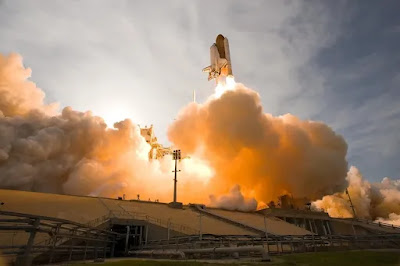8 Data Science & Analytics Interview Questions to Help You Ace the Interview
8 Data Science & Analytics Interview Questions to Help You Ace the Interview.
The first step in becoming a data scientist or analytics expert is to prepare yourself by getting ready for the job interview. In this article, we will discuss some of the most common interview questions that are asked at Data Science and Analytics interviews so you can prepare yourself and be better prepared for your next job interview! Read on!
1) What are you most proud of?
I was able to scale, evolve and innovate quickly as a software developer by learning how to adapt new technologies and skills rapidly. However, I often had trouble explaining why I chose certain design decisions during code reviews with my peers. By studying advanced programming languages like Python and SAS, I'm more comfortable when speaking about best practices with more senior developers.
2) Tell me about a time when...
Prepare for your interview by thinking about how you've handled difficult situations in a past job. Ask yourself what skills you used, how well you did, and why you made certain decisions. Come up with at least one example of when you have had to negotiate or solve an interpersonal problem with a coworker, client, or boss. Share these stories during your interview so they can get a better sense of who you are as a professional and what strengths and skills might help them fill their role. When asked Tell me about a time when... your answer will be ready in seconds!
3) What have you learned from your mistakes?
No matter how carefully we plan, something unexpected always happens. The key is being able to roll with it and learn from your mistakes. Learn from your errors: try to figure out what went wrong and why. Maybe you overestimated customer demand for a new product or feature; maybe you didn't validate your assumptions before spending a lot of time building something that wasn't wanted. If you don't allow yourself to make these kinds of mistakes, then when things do go south, you'll be paralyzed by fear and uncertainty. Rather than allowing yourself the freedom and flexibility to learn from your errors, you'll just be stuck in a state of paralysis while trying not to make any more mistakes!
4) How would you describe yourself in three words?
I would describe myself as a thinker, a learner, and an innovator. With just three words I cannot capture all that I am, but these three qualities have made me successful in life so far. On a daily basis, I love thinking about solutions to complex problems—this is what makes my work interesting and engaging. My curiosity led me down many interesting paths during my academic career, including math (Multivariate Calculus & Linear Algebra), computer science (Tableau), psychology (SPSS), statistics (Statistics), and engineering (MATLAB). To help you understand how that translates into value for our clients, let’s look at one example.
5) Where do you see yourself in five years?
Before you attempt to answer a question like Where do you see yourself in five years? it’s important that you have an understanding of what your long-term goals are. Remember, companies want more than just a quick fix. If you can share how your ambitions will align with those of their company, then they’ll be more likely to invest in you and your skillset.
6) If you could start over, what would you do differently?
In general, interviewing is not a pleasant experience. For example, questions like If you could start over, what would you do differently? are likely meant to trip you up. Instead of answering with something generic that your interviewers can't follow up on, dig deep into your past and think about a time when you really wish things had gone differently. Think about why it didn't work out in that scenario and apply those lessons directly to your current situation. If you're able to answer tough questions like these in a way that shows your interviewer that you've taken their advice into account and are applying it effectively, then you're likely going to come off as more intelligent than your competition!
7) Can you tell me more about your previous experience?
The question is quite simple. Please walk me through your resume and tell me what you would do in such and such a situation. How would you resolve it? I am looking for self-confident answers as well as specific solutions for questions about real-life business cases. Don’t just list tasks that have been done, describe how you got them done - using technical skills like SQL or VBA, or non-technical skills like time management or working with other people. Do your homework on the company – read their website, look at what they do, their products, etc... And then match your experience with those things that are relevant to that company’s area of expertise. Show yourself in action - a video of you presenting something will score higher than a description of it!
8) Why should we hire you instead of someone else?
This question serves two purposes. First, it lets you demonstrate your communication skills by giving a concise answer that answers both questions—why should we hire you and why should we not hire someone else. Second, it gets you talking about yourself, which is something every data scientist has to get used to. Remember that your goal in an interview is not necessary to explain what data science is but rather how you would apply your skills in a hypothetical situation. This question gives you an opportunity to do just that. (Tip: If possible, relate back to a specific skill or experience). Hint: Start with describing some of your previous projects and make sure it relates directly to data science before moving on to machine learning-related topics such as Hadoop, big data analytics, etc...





